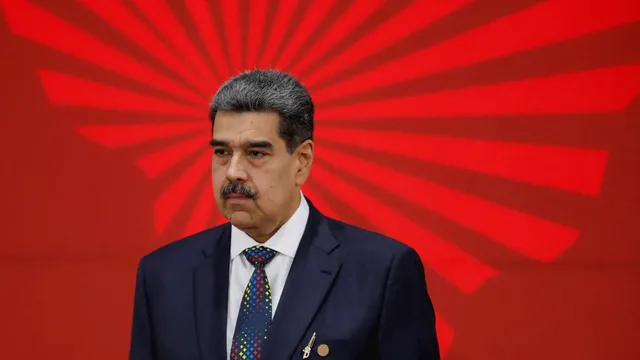
Two U.S. citizens arrested as Maduro calls them 'mercenaries'
2025-01-10 00:00- Two U.S. citizens have been detained in Venezuela, amid claims from President Nicolas Maduro of a conspiracy against his government.
- These arrests are part of a larger pattern of crackdowns on dissent, with Maduro's government detaining numerous foreign nationals under similar accusations.
- The actions coincide with heightened tensions in Venezuela's political landscape, as Maduro prepares for his third term through a contested election process.
Express your sentiment!
Insights
In Venezuela, President Nicolas Maduro conducted a significant crackdown on individuals he described as foreign mercenaries, resulting in the arrest of two U.S. citizens as part of a broader group. This action took place just days before Maduro's inauguration for a new term in January 2025, following a contested election in July 2024, which many state was illegitimate. The president claimed these individuals, among seven foreigners detained, had been involved in efforts to destabilize the country, though details about their actual activities remained vague. Maduro's government has previously labeled opposition figures and foreign nationals as terrorists or mercenaries, using these claims to justify crackdowns on dissent and strengthen his grip on power amidst an ongoing humanitarian crisis. Reports indicated that more than 120 foreign nationals had been arrested on similar grounds, painting a picture of widespread repression against any perceived threats to Maduro's authority. The timing of these arrests suggests a strategy to deter protests and suppress opposition, particularly as the internal political atmosphere remains fraught with tension and demands for accountability. Moreover, the broader political context highlights a significant divide between Maduro's regime and the opposition, led by figures such as Edmundo Gonzalez, who has been recognized internationally as the legitimate president following his acclaimed victory in the July 2024 election. The U.S. and several other countries rejected the results of the vote that established Maduro's third term, indicating strong international discontent with the Venezuelan government and its methods of governance. Through these actions, Maduro appears to be reinforcing an environment of fear among citizens while attempting to validate his actions as a necessary response to external threats. The situation raises pressing ethical concerns about the justice of the detainees' arrests and the Venezuelan government's adherence to international human rights standards. As Maduro prepares for his term under an increasingly watchful international community, his continued headline-worthy actions, such as the arrests of foreign nationals, highlight the ongoing struggle for power and the challenging dynamics of Venezuelan politics.
Contexts
The human rights situation in Venezuela under the government of Nicolás Maduro has been a subject of intense scrutiny and condemnation by various international organizations and governments. Since Maduro's rise to power in 2013, numerous reports have documented systematic abuses against opposition figures, civil society activists, and ordinary citizens. The government has been accused of employing tactics such as arbitrary detention, enforced disappearances, and torture, primarily targeting those who dissent against the regime. These actions represent a significant violation of both national and international human rights norms, fundamentally undermining the rule of law and the principles of democracy in the country. One of the most concerning aspects of the human rights abuses in Venezuela involves the treatment of political prisoners. Reports indicate that thousands of individuals have been jailed merely for exercising their rights to free speech and peaceful assembly. Those detained often face brutal conditions, severe overcrowding, and inadequate access to medical care. Furthermore, many political prisoners are subjected to ill-treatment and torture while in custody, creating an atmosphere of fear that stifles legitimate political discourse. This pattern of repression not only affects those directly involved in activism but also has a chilling effect on broader civil society. The international response to the Maduro regime's human rights abuses has been mixed. Various governments, including those in the United States and the European Union, have imposed sanctions targeting key figures within the Maduro administration and the country's military. However, diplomatic efforts to engage the Maduro regime in discussions about human rights have often been met with resistance, as the government frequently dismisses accusations of abuses as part of a foreign interventionist agenda. Despite international law obligating states to uphold human rights, the Maduro government shows little sign of compliance, prioritizing its retention of power over the rights and well-being of its citizens. In light of these developments, the urgent need for consistent and effective international action becomes apparent. Human rights organizations continue to call for thorough investigations into abuses and accountability for perpetrators, highlighting the importance of international legal frameworks in addressing these issues. Moreover, supporting Venezuelan civil society and independent media is crucial to fostering a more transparent and accountable government. Without concerted efforts to address the human rights situation, the prospects for a peaceful and democratic resolution to Venezuela's ongoing crises remain grim.